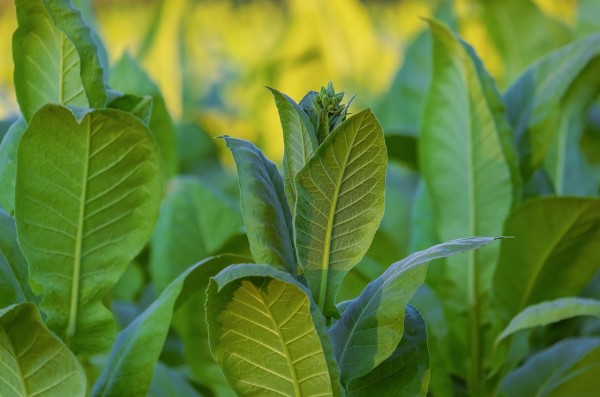The Answer to Coronavirus Vaccine May Be Found in Tobacco Plants
See more: Do Vitamins Help in the Body's Fight Against Coronavirus?

As the world scrambles to find a vaccine for coronavirus, two biotech companies may have found the answer in tobacco plants.
While tobacco has been known to be one of the world's most deadly plants, it may seem ironic that the answer to the global pandemic could be produced through its leaves.
These biotech companies are using the tobacco plant, Nicotiana tabacum, and its relative N. benthamiana for pharming in order to produce a key protein from the coronavirus that can be used in a vaccine.
Because of how these plants are easily modifiable, they have become known as the lab mice of the plant science world.
Executive vice president for research and development for R.J. Reynolds Tobacco, said that if you want to be cynical about it, you could, but at the end of the day the tobacco plant is still just a plant.
Reynolds owns Kentucky BioProcessing, one of the biotech companies working on a COVID-19 vaccine derived from plants.
Kentucky BioProcessing
Kentucky BioProcessing, Inc. (KBP) is the world leader when it comes to using tobacco plants to express, extract and purify proteins for use as vaccines and other pharmaceuticals.
The approach that this company is using is introducing something that resembles a virus but isn't infectious to the immune system.
Vaccines work by letting the immune system believe that it has been exposed to a virus so that in the eventuality that the real thing shows up, it can trigger an immune response to fight it off.
How the Vaccine Was Made
To make the vaccine, the company makes use of tobacco seeds planted in a greenhouse. At around 25 days, the plants are dipped into a solution containing agrobacteria, microorganisms that infect plants.
The companies have modified the agrobacteria to contain instructions for making a protein from the coronavirus. The plants are then able to take up those instructions.
According to company president Hugh Haydon, seven days after being exposed to the agrobacteria, the plant is harvested and undergoes an extraction and purification process, the result at the end of the cycle is a 99.9 percent pure protein.
A separate set of plants produces a tiny particle responsible for packaging the viral protein.
Once the components have been manufactured and purified separately, they can chemically attach them to each other to produce a vaccine that can be injected into humans. In theory, this should trigger an immune response and protect someone from dying from COVID-19.
Medicago
Medicago is a Canadian biotech company that focuses on the commercialization of virus-like particles using plants, and also uses tobacco plants to make a vaccine.
Bruce Clark, CEO of Medicago, said that they have begun testing the vaccine in human candidates and results from the initial studies are expected soon.
The vaccine they developed from tobacco plant may look like a virus and generate a response like a virus, but because there is no genetic material inside, it is not capable of actually infecting someone.
Kentucky Bioprocessing, on the other hand, is not yet ready to administer initial testing of the COVID-19 vaccine in humans. Haydon said that public health challenges would be present, and the more they learn about it as a company, the better prepared they will be for whatever that lies ahead.
Further reading: A Readily Available Antimicrobial Drug Has Shown Success in Combatting Coronavirus
Check out more news and information on COVID-19 on MD News Daily.
Oct 15, 2020 09:43 PM EDT





